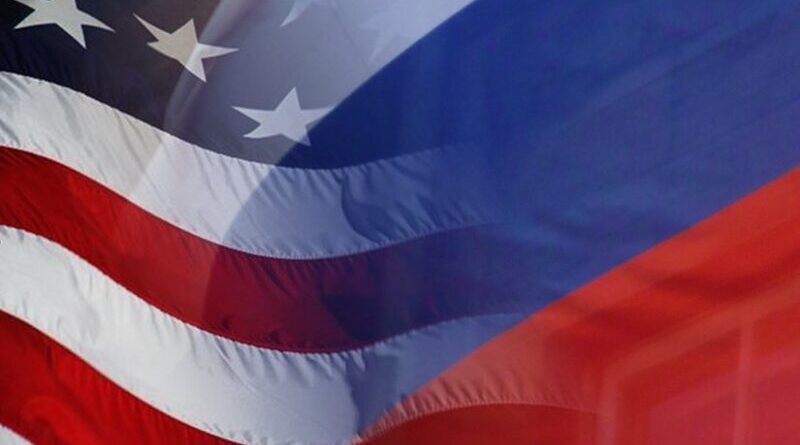Which Embassy Will Be First In Jerusalem: The Russian Or The American? – OpEd
Once again US President Donald Trump is faced with deciding whether to postpone moving the US embassy from Tel Aviv to Jerusalem. The determination must be made in the next few days.
It was way back in 1995 that Congress passed legislation requiring the US embassy in Israel to be relocated no later than 31 May 1999. Although adopted by the House of Representatives and the Senate by overwhelming majorities, the Jerusalem Embassy Act has never been implemented. For 22 years every President since then – Bush, Clinton, Bush, Obama, Trump – has used the powers contained in Section 7 of the Act to sign a 6-month waiver “to protect the national security interests of the United States.”
During his presidential campaign, Trump stated unequivocally that he would move the US embassy in Israel from Tel Aviv to Jerusalem. He was equally keen to broker a peace deal between Israel and the Palestinians, and is pursuing that possibility with determination. To avoid compromising the delicate negotiations currently in progress, led by his son-in-law, Jared Kushner, Trump has so far delayed acting on the embassy issue. This provides Putin with a political window of opportunity that will not remain open for very long.
At present not a single foreign embassy is located in Jerusalem. This is because in international eyes the exact status of Jerusalem remains undetermined. Back in 1947 the original two-state UN plan envisaged Jerusalem as “a corpus separatum under a special international regime” to be administered by the United Nations. The UN as a whole, like the European Union (EU), still clings to this concept. But incongruously, both the UN and the EU also assert their support for the objective of “a viable state of Palestine in the West Bank, including East Jerusalem.” Now, the city of Jerusalem is either an international entity or part of it is Palestinian. Both cannot be the case simultaneously.
The UN Security Council in its latest pronouncement on the subject at least appears consistent. Urging countries and organizations to distinguish “between the territory of the State of Israel and the territories occupied since 1967”, its Resolution 2334, makes no mention of an internationalized Jerusalem, but refers three times to “Palestinian territory occupied since 1967, including East Jerusalem.”
2334 was passed by 14 of the 15 members of the Security Council, with only the US abstaining. Of the 15, only one nation has recognized the logical implications of what they voted for – namely that if East Jerusalem is Palestinian territory, then West Jerusalem must be an integral part of sovereign Israel.
On 6 April 2017 Russia issued an unequivocal statement. While reaffirming its support for the two-state solution and for East Jerusalem as the capital of a future Palestinian state, Moscow declared: “At the same time, we must state that in this context we view West Jerusalem as the capital of Israel.”
This declaration, ground-breaking in itself, carries a corollary. Countries normally site their embassies in the capital city of the country with which they have established diplomatic relations. Is Putin politically in a position to take the statement to its logical conclusion?
Russia has been fighting shoulder-to-shoulder with Iran in Syria, supporting President Bashar al-Assad in his battle to retain power. Iran, its satrap Hezbollah, and Assad’s Syria are all ferocious enemies of Israel and would certainly be opposed to any move that enhanced Israel’s status. On the other hand, their battlefield collaboration did not inhibit Moscow’s recognition of West Jerusalem as Israel’s capital.
As regards the Palestinians, Putin has fostered good relations with PA President Mahmoud Abbas, but they are as nothing compared with Russo-Israeli relations, which are flourishing. There is Gazprom’s multi-million 20-year contract, signed in 2016, to market Israeli liquefied natural gas from the vast Tamar field. Collaboration is also being developed in a whole variety of other areas including free trade, nuclear and other hi-technology, space cooperation and agriculture. Moving the Russian embassy to West Jerusalem could do nothing but enhance this burgeoning relationship.
Were Putin to make this move in the US-Russian chess game being played for influence in the Middle East, there is no question of a checkmate, but he could certainly call “Check”. It would prove Russia’s consistency on Jerusalem, provide it with a notable advantage, and extend its growing footprint in the Middle East.
The counter move, press reports suggest, might be that that while Trump again postpones the embassy move in order to protect his delicate peace negotiations, he could sugar the pill by recognizing Jerusalem as Israel’s capital. All will soon be revealed.


Russia needs natural gas like S Arabia needs sand.